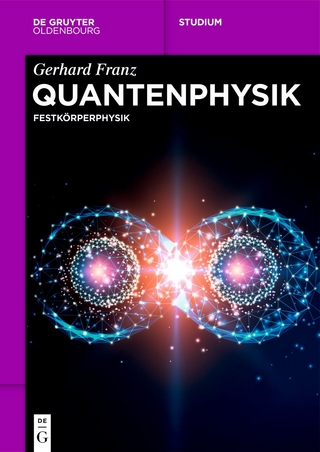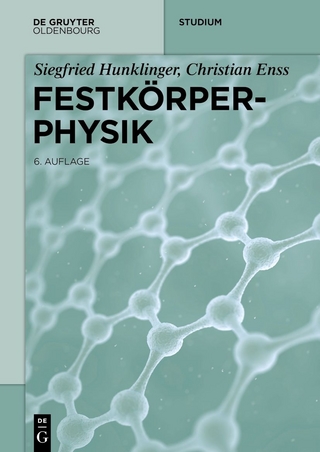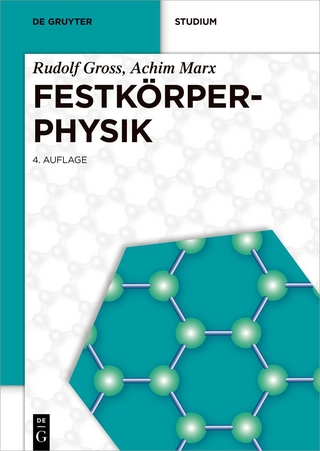
Field-Theoretic Simulations in Soft Matter and Quantum Fluids
Oxford University Press (Verlag)
978-0-19-895281-7 (ISBN)
- Noch nicht erschienen (ca. Januar 2025)
- Versandkostenfrei innerhalb Deutschlands
- Auch auf Rechnung
- Verfügbarkeit in der Filiale vor Ort prüfen
- Artikel merken
The monograph details analytical methods for converting classical and quantum many-body problems to equilibrium field theory models with a molecular basis. Numerical methods are described that enable efficient, accurate, and scalable simulations of such models on modern computer hardware, including graphics processing units (GPUs). Extensions to non-equilibrium systems are discussed, along with an introduction to advanced field-theoretic simulation techniques including free energy estimation, alternative ensembles, coarse-graining, and variable cell methods.
Glenn H. Fredrickson is a soft matter theorist recognized for his work on self-assembling polymers, especially block copolymers. He pioneered the “field-theoretic simulation” technique that has been widely deployed to assess the structure and phase behavior of complex, multiphase polymer systems. Fredrickson was born in Washington, D.C., and grew up in Indialantic, Florida. He graduated from the University of Florida with a B.S. degree in chemical engineering and received M.S. and Ph.D. degrees in the same discipline from Stanford University. In 1984, he joined AT&T Bell Laboratories as a Member of Technical Staff, and moved to the University of California, Santa Barbara (UCSB) in 1990 as a Professor of Chemical Engineering and Materials. Fredrickson is currently a Distinguished Professor at UCSB. He is a member of the National Academy of Sciences and the National Academy of Engineering of the USA. Kris T. Delaney is a condensed matter physicist with expertise in polymer physics, quantum many-body theory, magnetism, numerical analysis, and high-performance computing. Delaney was born in Warrington, United Kingdom and received his M.Phys. and Ph.D. degrees in theoretical physics and physics, respectively, from the University of York. In 2003, he joined the Physics Department at the University of Illinois at Urbana?Champaign for postdoctoral research in quantum Monte Carlo simulations. He moved to the Materials Research Laboratory at the University of California, Santa Barbara, in 2006, where he specialized in theoretical and computational research on a broad range of materials science applications, including magnetism and multiferroics, semiconductor physics, optoelectronics, and polymer physics. In 2023 he joined Insydium Ltd., where he develops GPU-accelerated physics-based simulation software for computer animation and motion-graphics applications.
1: Introduction
2: Classical Equilibrium Theory: Particles to Fields
3: Quantum Equilibrium Theory: Particles to Fields
4: Numerical Methods for Field Operations
5: Numerical Methods for Field-Theoretic Simulations
6: Non-equilibrium Extensions
7: Advanced Simulation Methods
| Erscheint lt. Verlag | 16.1.2025 |
|---|---|
| Zusatzinfo | 58 linedrawings and halftones |
| Verlagsort | Oxford |
| Sprache | englisch |
| Maße | 171 x 246 mm |
| Themenwelt | Naturwissenschaften ► Physik / Astronomie ► Festkörperphysik |
| Naturwissenschaften ► Physik / Astronomie ► Quantenphysik | |
| Naturwissenschaften ► Physik / Astronomie ► Strömungsmechanik | |
| ISBN-10 | 0-19-895281-3 / 0198952813 |
| ISBN-13 | 978-0-19-895281-7 / 9780198952817 |
| Zustand | Neuware |
| Haben Sie eine Frage zum Produkt? |
aus dem Bereich


